Brave Search API vs the Bing API
Seeing a message that the “Bing Search and Bing Custom Search APIs will be retired on 11th August 2025,” and that “New deployments are not available and existing resources will be disabled”? The Brave Search API is a readymade replacement that offers better pricing, endpoints, and data structure for search and AI projects of all kinds. Read on to learn more.
Brave Search is the fastest growing search engine since Bing, with over 8 billion annualized searches. Brave’s independent search engine is also available via the Brave Search API, a solid alternative to the Bing Search API.
Recently, many customers of the Bing Search and Bing Custom Search APIs began receiving notices that these tools will be retired. Instead, customers are steered to “consider Grounding with Bing Search as part of Azure AI Agents.” The Brave Search API can also help developers of search apps, AI experiences, and more “incorporate real-time, public Web data when generating responses with an LLM.” And often with better structured, more unique data, all at a lower cost.
The advantages of the Brave Search API
The Brave Search API allows anyone to integrate billions of search results with a simple API call. Whether you’re building an app, or training an AI model, the Brave Search API puts affordable, innovative, and independent search results at your fingertips—and never sacrifices privacy in the process.

User-first privacy
Brave Search doesn’t profile you. Building your app, website, or service using the Brave Search API brings these same privacy protections to your own apps, sites, and end users. Bing, on the other hand, collects your search data in your Microsoft account. Brave is the clear privacy-respecting winner.
Developer-first pricing
The Brave Search API uses a developer-first pricing model that’s scalable, without costing a fortune. It’s free to try (for up to 2,000 queries per month), and offers several subscription levels to suit your needs—including specific plans for AI training. Following the recent surge in Bing search API pricing, Brave offers developers incredible savings.
For a sneak preview, here’s how Brave compares to other API providers:
| Brave Search API | Bing Search API | |
|---|---|---|
| Free trial | 2,000 queries per month | 1,000 queries per month |
| Search results | $3 - $5 CPM | $15 - $25 CPM |
| Data for AI | $5 - $45 CPM | $28 - $200 CPM |
World-class independent index
Brave indexes millions of new pages daily, including via users who opt in to the Web Discovery Project (WDP) contribution framework. It’s a privacy-respecting way to build a search index on real, human activity. It’s a large part of how Brave Search offers more high-quality results and less junk than you’d find in Big Tech indexes like Bing’s.

Innovative search units
Brave Search rethinks the modern search engine, providing results in all kinds of unique, creative ways. Brave’s search units look and feel better than the competition.
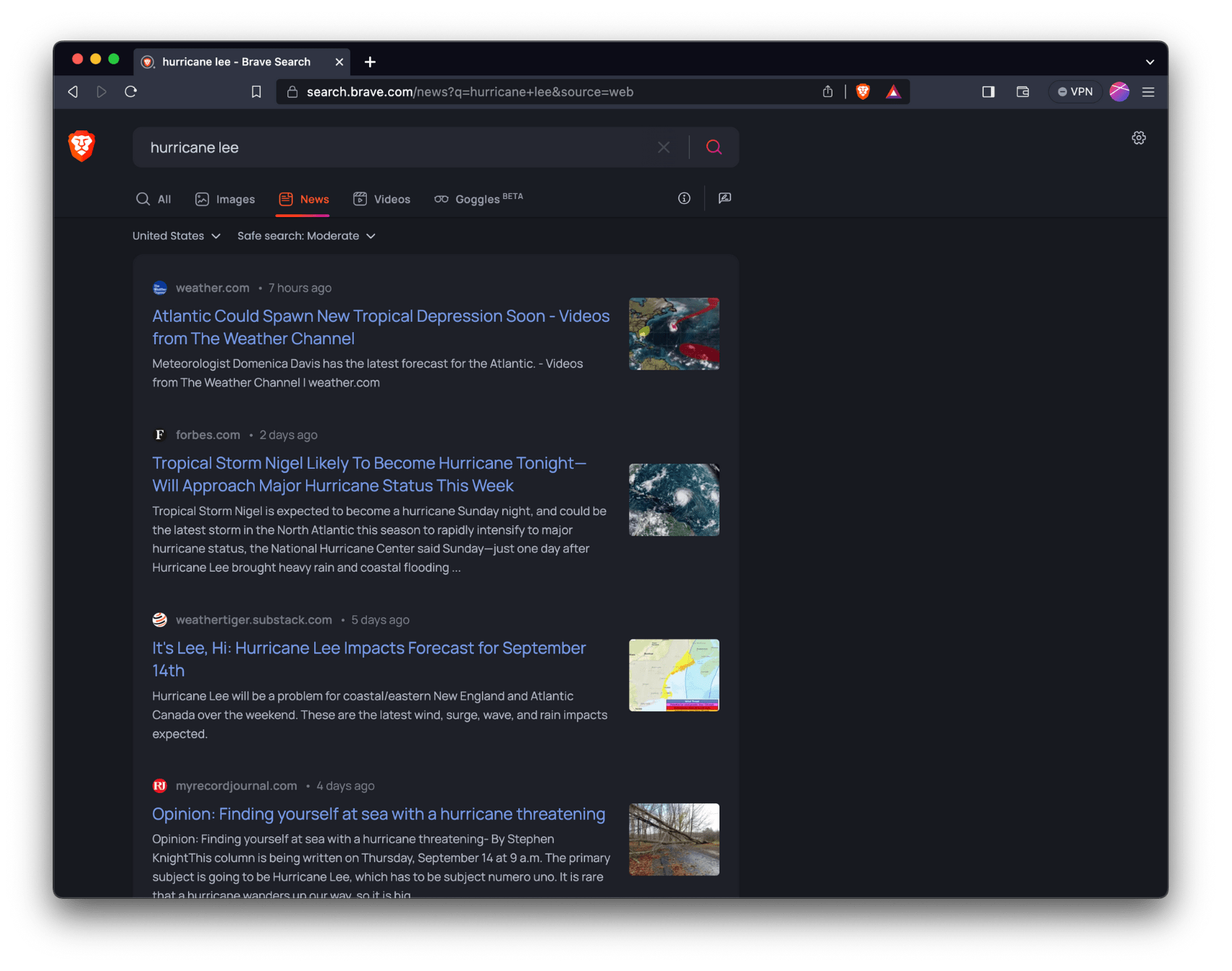
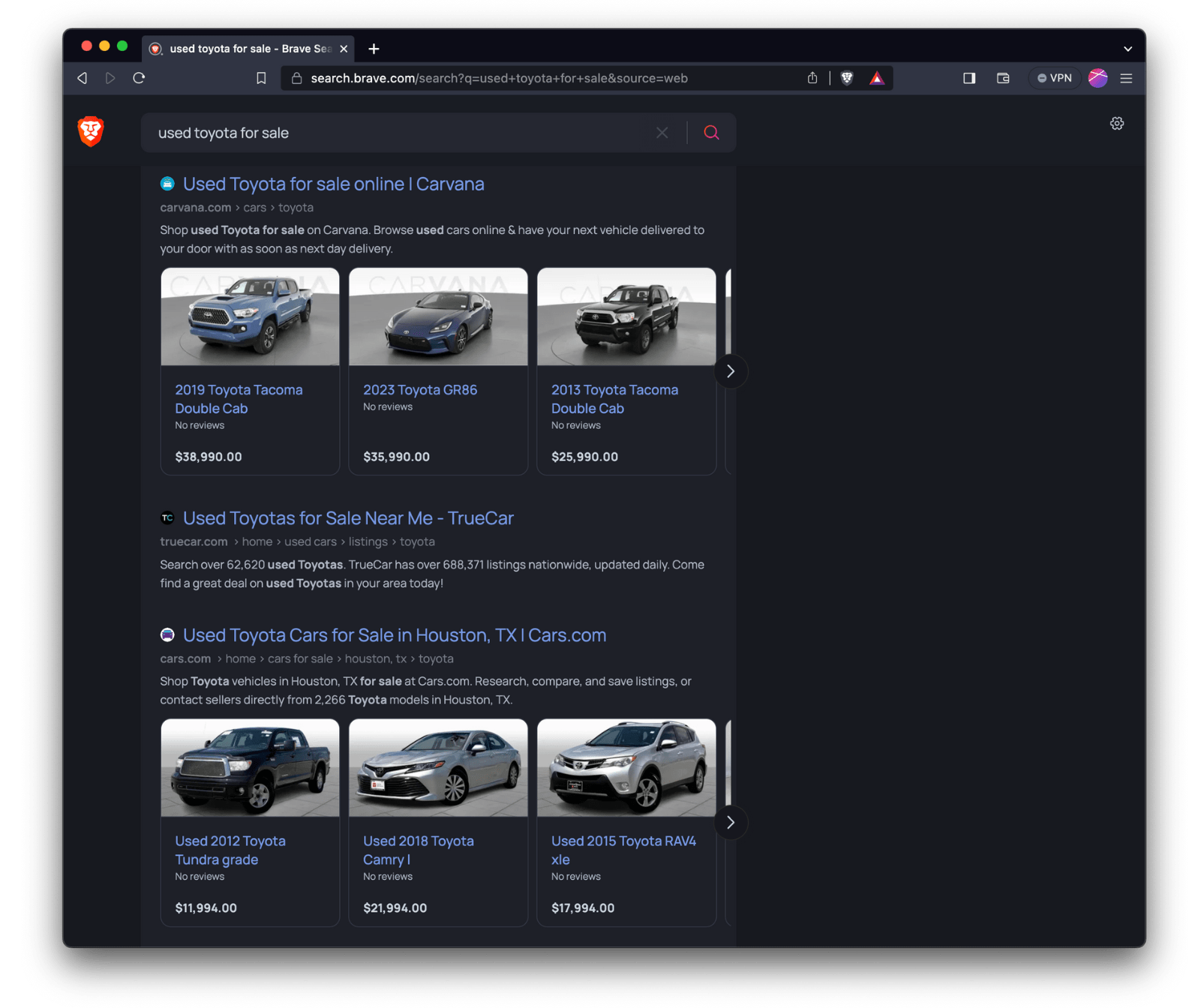
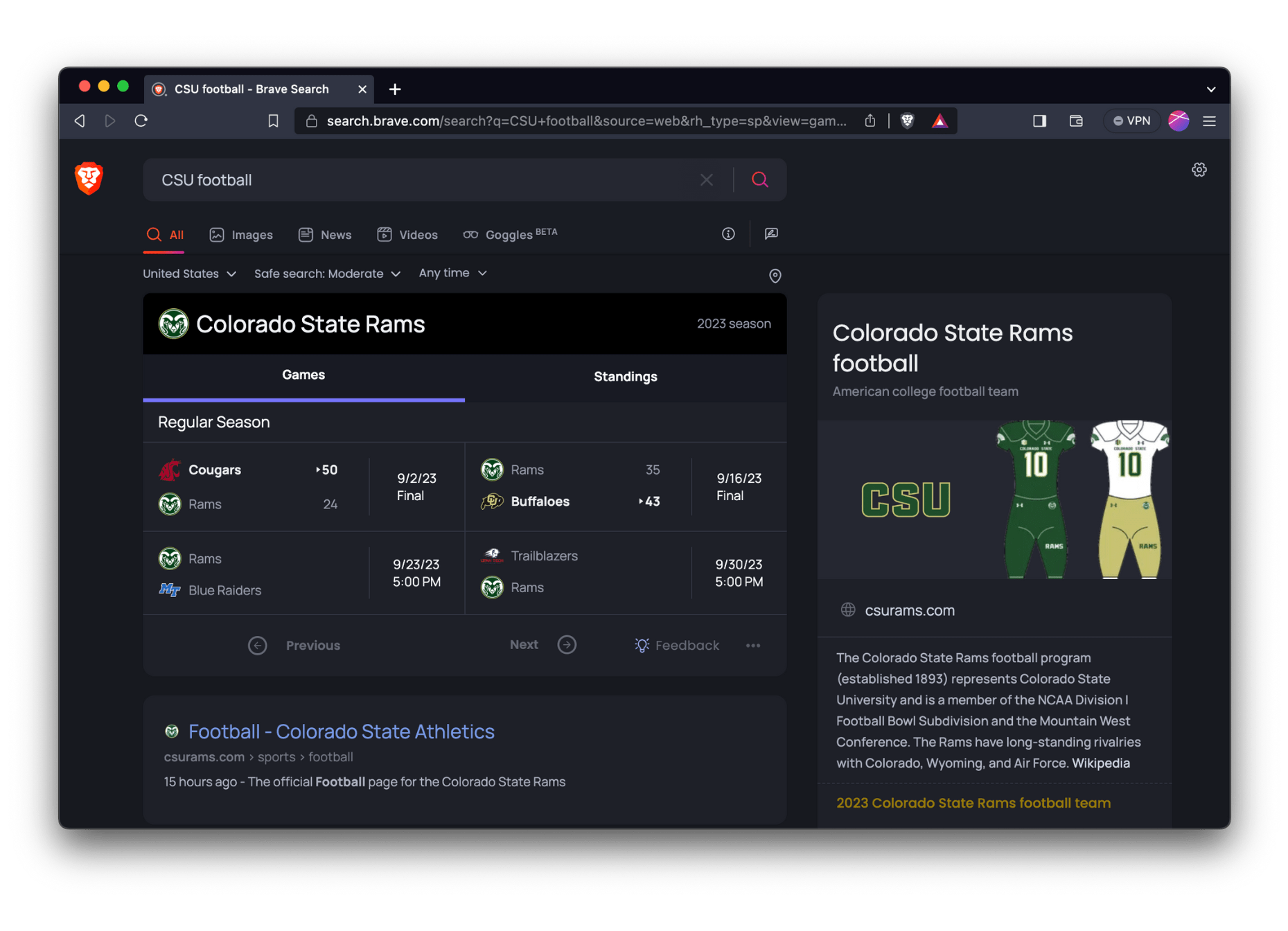

Brave’s search units also provide functionality that you just won’t find anywhere else.
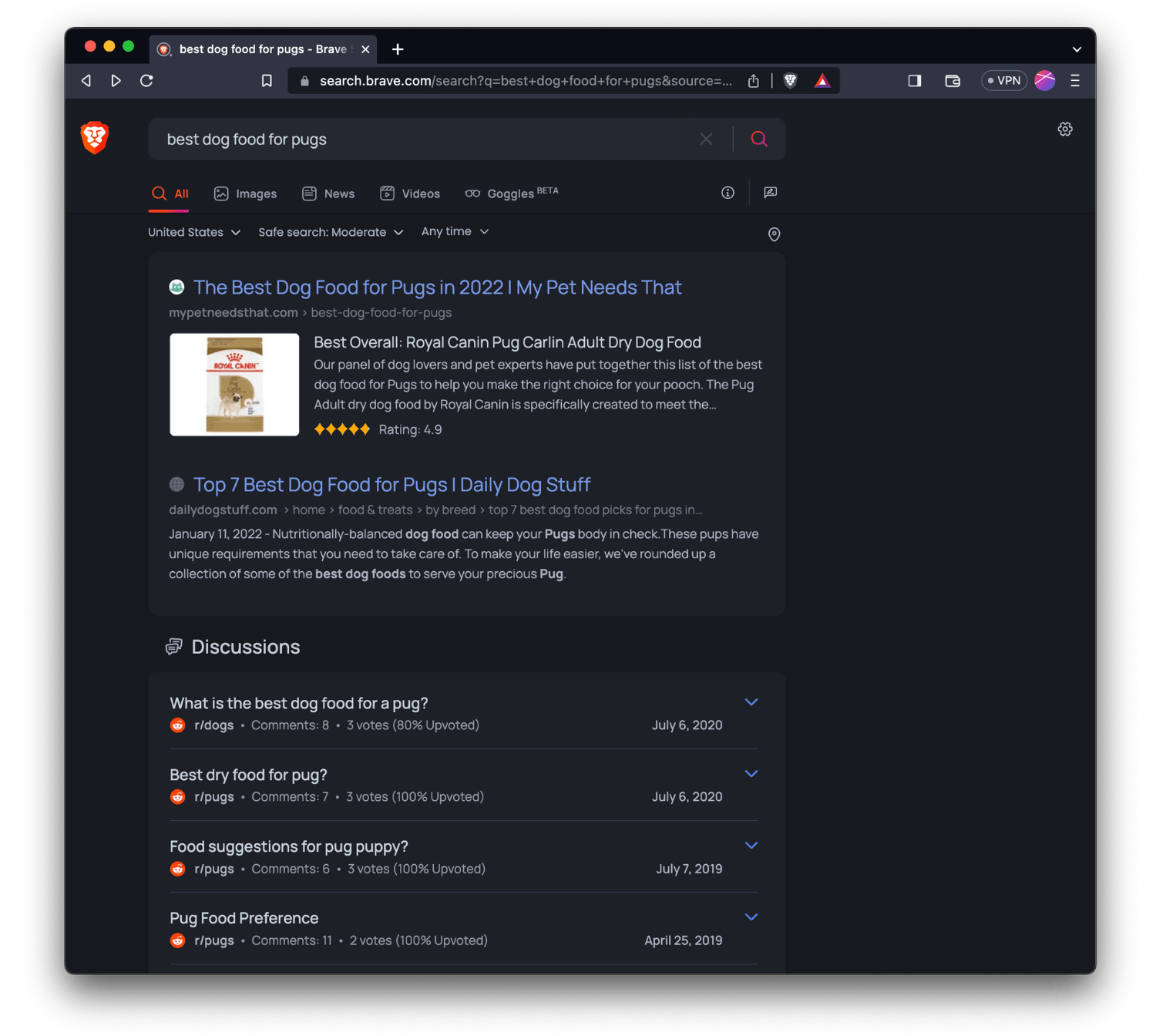
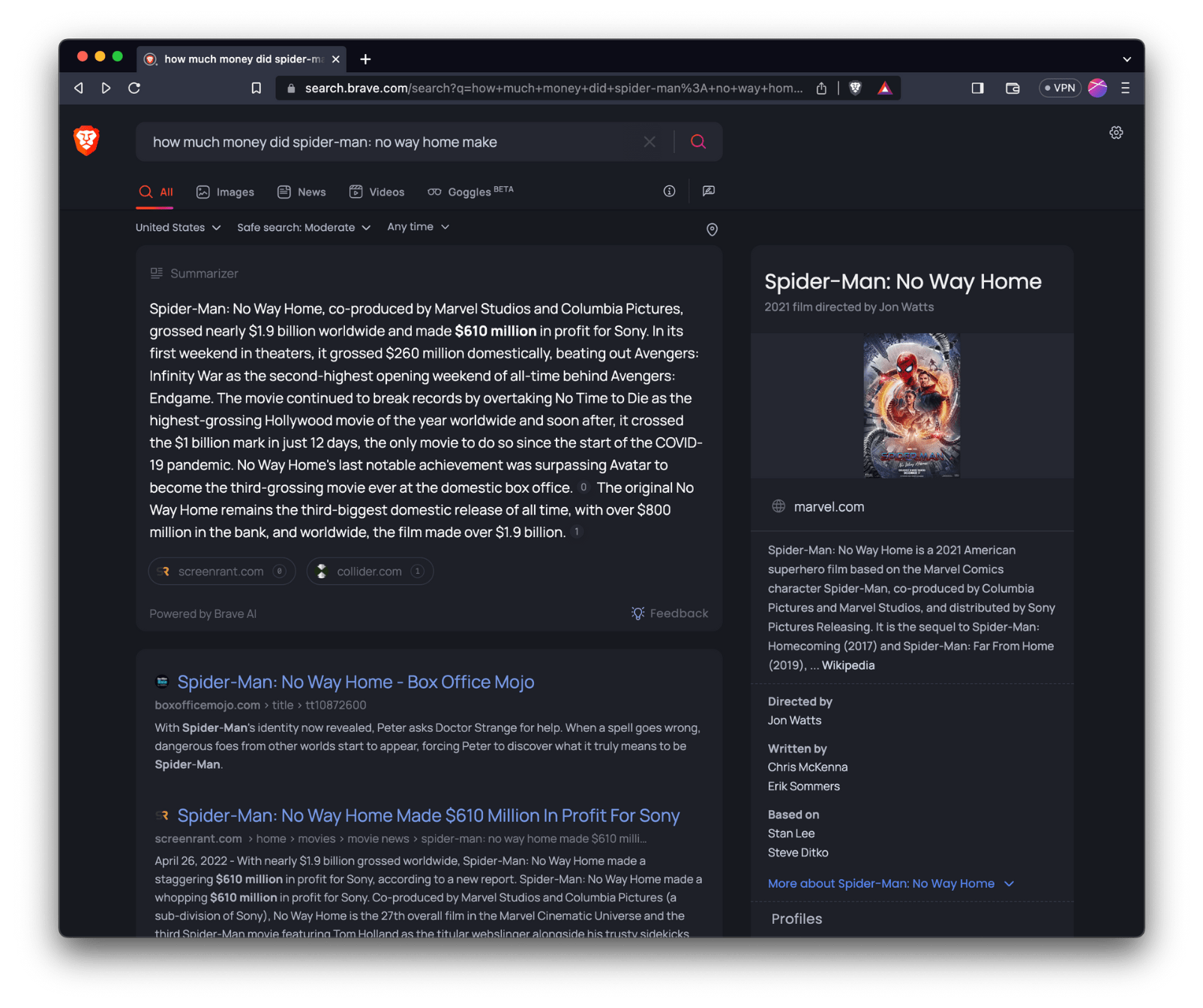
To try the Brave Search API, visit the Brave Search API webpage to get started for free.






